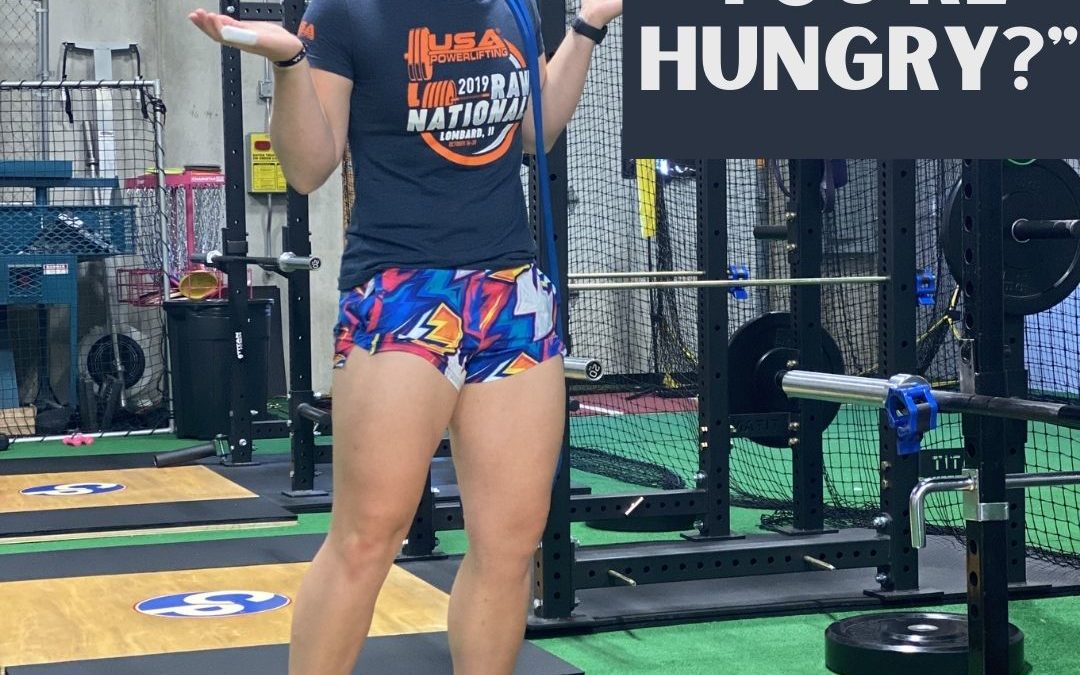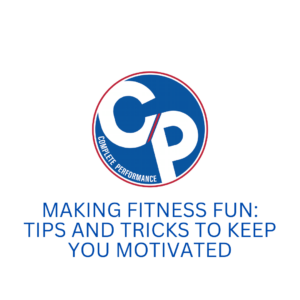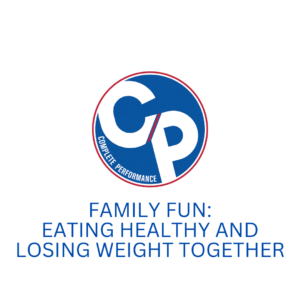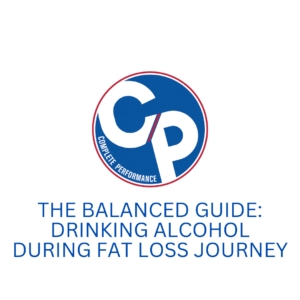If you say “hunger” on a global scale, you think of the impoverished, malnourished individuals of the world.
If you say “hunger” in America, it’s likely your mind travels back to the last time you ate.
There’s a difference.
Globally, hunger is a MAJOR issue. One that further divides our world every single day. If you look at a picture of the average American, you’d NEVER guess hunger was an issue for us. However, you travel to the other side of the world, and as an American you look left and right, and you see hungry, malnourished individuals.
Nationally, hunger is also a MAJOR issue. The inability to properly recognize our body’s hunger signals has played a BIG role in the obesity epidemic. It leads to things like eating until you’re sick to your stomach, eating when you’re not hungry, and eating because food is there.
Now, I’m not writing this blog to tell you to neglect the world hunger issues.
But what I am here to do is to offer my expertise on our national hunger issue, in hope of healing those here locally so we can better care for those around the world.
What Is Hunger?
By definition (Merriam-Webster) is a craving or urgent need for food or an uneasy sensation occasioned by the lack of food.
By MY definition, it’s that uncomfortable feeling that feels like an ache, growl, or gurgle caused by a lack of food in the body.
Here’s the funny thing about hunger – both definitions suggest hunger be caused by a lack of food, but have you ever felt hungry shortly after eating?
So, the definition of hunger doesn’t really fit, does it?
I think there’s MORE to both definitions of hunger. In fact, I think there’s more than one type of hunger – real and false hunger.
Real Hunger
This is the hunger that I think both the professional and my definition are talking about. It’s the hunger caused by an uptick in the hunger hormone (ghrelin) leading to a signaling within the brain to increase appetite and seek out food.
The name is as it seems – it’s real. It’s there because you haven’t eaten in a few hours and your body’s running low on fuel.
Here are defining characteristics of real hunger:
- An empty, hollow sensation in your stomach that gradually comes on and builds in intensity.
- It will not go away without eating, and consuming food leads to a feeling of satisfaction.
- It’s not for any specific food, but for ANYTHING.
False Hunger
This is the hunger that confuses us – “I just ate, how am I hungry?”
False hunger is NOT triggered from the normal uptick in ghrelin, but a nervous system adjustment to navigate the body’s stress response.
Unfortunately, this is the hunger that seriously plagues us because we struggle to differentiate and recognize it as different from Real Hunger.
Here are defining characteristics of false hunger:
- There’s little physical sensation, but simply a desire to eat that suddenly comes on.
- It’s triggered by an appealing smell, an emotion, or by an experience, which once the stimulant is removed, the sensation to eat decreases or disappears.
- There’s very short-term to no satisfaction while eating which leads to overeating, bingeing, and feelings of guilt and shame.
What Causes Hunger?
Quite simply, hunger is caused by the body’s lack of fuel (AKA calories) to supply bodily processes. When this happens, the body signals an uptick in the hormone ghrelin, which in turn stimulates signals such as the sensation of hunger; GI gurgling or rumbling; and an increased sensitivity to sites, tastes, and smells.
But let’s dive into that a little bit more…
My guess is you’re not reading this blog because you’re curious as to why every 3-ish hours your tummy starts to rumble.
No, you probably dove into this blog trying to find out why you’re hungry ALL. THE. TIME.
And to that, I say – here are 13 reasons you’re hungry.
#1 You’re Not Eating Enough Protein
Protein is the most satiating nutrient because it helps to increase the production of hormones that signal fullness and reduces the levels of hormone that stimulate hunger (ghrelin).
As a very broad and general recommendation, I suggest consuming no fewer than 100 grams of protein per day.
#2 You’re Not Getting Enough Sleep
This is HUGE for hunger (and health overall, let’s not forget that).
Sleep helps to regulate ghrelin and leptin (the hormone responsible for the feeling of fullness) levels.
Standard recommendations suggest 49 hours of sleep per week, which averages out to 7 hours per night.
#3 You’re Eating Too Many Processed Carbs
Processed carbs are stripped of most vitamins, minerals, and fiber.
Add to that the fact that these processed carbs are usually refined and digested VERY quickly in the body and it’s not wonder you never experience the feeling of fullness.
Beyond this, these processed carbs lead to a rapid spike in and eventual drop in blood sugar levels. When this takes place your body produces a signal that it needs more food in order to reestablish blood sugar levels.
If you’re looking to drop your intake of processed carbs, start by adding in fruits and veggies. My general recommendation for health is 3 servings of vegetables (1 to 2 cups) and 1 servings of fruits (1/2 to 1 cup) daily.
#4 You’re Short on Dietary Fats
Next to protein, fat is the most satiating nutrient because it has a very slow GI transit time.
Now, I’m not recommending you load up on fats and proteins to keep yourself from ever being hungry (your gut will be one stinky mess!), but research has found low-fat diets yield more feelings of hunger.
Look to add in foods like eggs, nuts, avocados, oils as dressings, and full fat dairy products.
#5 You’re Dehydrated
At this point, every grown adult knows the importance of drinking water.
Water provides excellent support to the digestive tract and works wonders in reducing appetite when consumed before, during, after, and between meals.
Typically, I recommend no less than 100 ounces of water per day. If you struggle to drink water, I recommend eating water-rich foods like fruits and veggies to improve your hydration status.
#6 You’re Lacking Dietary Fiber
High fiber foods help keep your hunger at bay due to it’s ability to slow your stomach’s emptying rate.
Additionally, high fiber foods stimulate a greater release of the appetite-reducing hormones which contributes to the feeling of fullness.
Fiber is contained in a lot of whole, minimally processed foods, but some great places to start are oats, sweet potatoes, flax seeds, and a variety of green veggies.
#7 You’re Distracted
For Americans today, this is HUGE seeing as very few people sit down to eat without a single distraction.
Studies have found distracted eating to be associated with greater appetite, increased caloric intake, and weight gain largely since it reduces your awareness to how much you’re consuming.
Look, it’s tough to eliminate every distraction, but start by putting down the phone and turning off the TV to eat.
#8 You Exercise A Lot or Live a Very Active Lifestyle
More activity leads to more calories burned; therefore, it’s no surprise that more exercise and activity leads to greater feelings of hunger.
Now, I understand many people these days use exercise to burn calories and lose weight, but that doesn’t mean you can completely ignore your hunger cues.
Your body NEEDS fuel, and when you add activity it’s very important for your hunger levels, metabolic health, and overall health that you take that into consideration and add in more food.
#9 You Drink Too Much Alcohol
Everyone worries about the calories in alcohol, when you really should be worried about what you EAT when you consume alcohol.
Those munchies after a few drinks didn’t just happen…
Alcohol has BIG TIME appetite-stimulating effects.
Research supports alcohols inhibiting effect on leptin, particularly when it’s consumed BEFORE or DURING meals.
Add to that the well-known effects of alcohol in that it impairs your judgment and self-control, you’re asking for a much higher caloric intake while drinking.
#10 You Drink Your Calories
Liquid and solids act very differently in your digestive tract, and if you consume a lot of liquid foods (meal replacement shakes, soups, smoothies, etc.).
Why?
Well, the food doesn’t need to be broken down in your stomach, so it passes through more quickly than solid foods.
#11 You’re Stressed out
Stress is a MAJOR factor in hunger sensations, as excess stress has been proven to increase appetite. Cortisol is increased when the body is under stress, and that has been proven to promote hunger and food cravings.
Now, stress is inevitable but how you choose to manage it can significantly impact your hunger levels. Look to add stress relieving activities like exercise (but do remember that this is also a stressor), breathing, meditation, journaling, spending time outside, listening to music, and SO many more.
#12 Medications
Before we dive into this one, I want to make it very clear that if you are prescribed a medication wherein increased appetite is listed as a side effect, please do not alter your medication intake without consulting your physician.
Now, there are many medications out there that impact appetite. These include antidepressants, mood stabilizers, corticosteroids, anti-seizure, diabetic (insulin), and birth control medications.
#13 You Eat Too Fast
The speed at which you eat may play a role in how hungry you are. This is due in large part to a lack of chewing and decreased awareness of the amount of food being consumed. Eating too quickly doesn’t allow the body enough time to release anti-hunger hormones and signal fullness.
If you’re someone (like me) who eats too quickly, try chewing a set number of times, setting your utensils down between bites, taking a few deep breaths between bites, and taking a drink between bites.
Being hungry is normal.
Being hungry all the time, IS NOT.
If you feel your hunger is out of control or that your hunger continues to plague your fat loss results, let’s chat about some strategies to get your hunger in check.
About The Author
Jordan Davies is the Co-Owner of Complete Performance. Jordan has her B.S. in Exercise Science and Psychology, and her M.A. in Holistic Health Studies. She is a CSCS certified strength and conditioning coach, and a PN-1 and NCI-1 certified nutrition coach. She loves to study how the human body needs to be moved and nourished and making that fit to your unique lifestyle. Click Here Now to Apply for Coaching with Jordan.




